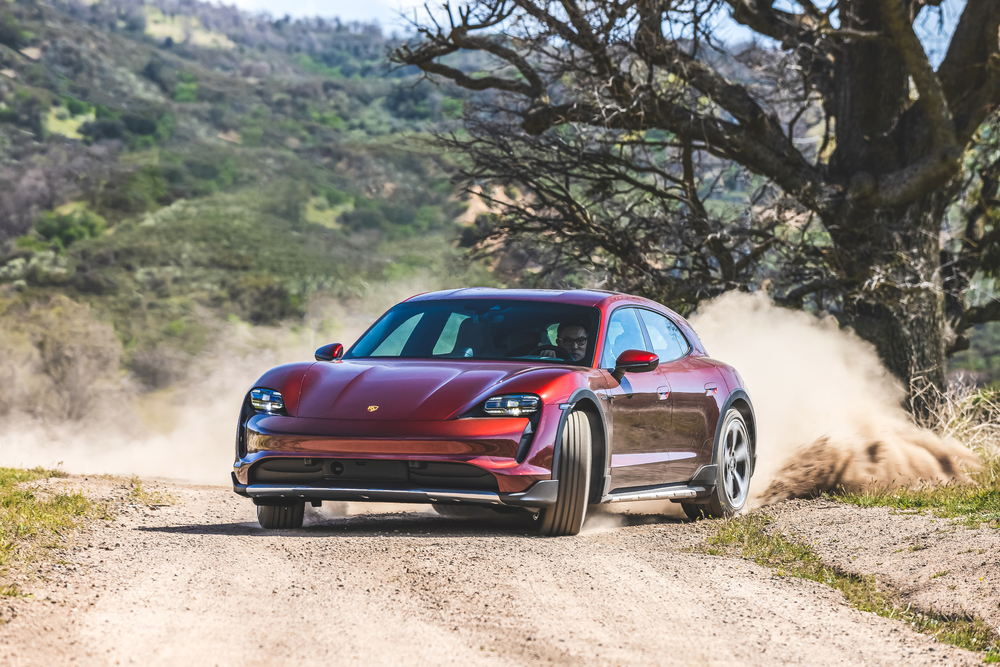Electric Vehicle Terminology: What's the Difference Between kW vs kWh?

Shopping for new electric vehicles can be incredibly daunting. Those not familiar with EV terminology will find themselves exposed to jargon like “BEVs”, “onboard chargers”, “DC Fast Charging” etc., and there are so many terms thrown around that it can be a bit too overwhelming.
(Related: Check out our explanation of different vehicle electrification types here.)

Although you won’t need to understand every single rating listed in a vehicle’s specifications, there are two important ones you will want to know: kilowatt (kW) and kilowatt-hour (kWh). Separated by only one letter in their abbreviated forms and very easy to mix up, these two measurements represent very different features of electric vehicles.
Kilowatt (kW): A Measurement of Power

Electricity is measured in units of power called watts, and in the context of electric vehicles, this measurement of power is commonly discussed in kilowatts (kW) where each kW represents 1000 watts. The kW rating in EVs is used to measure 2 core functions: the maximum power the drivetrain can deliver to the wheels for propulsion, and the maximum power the vehicle’s battery pack can be charged.
kW to Measure Power Output
Measuring power output of an EV in kW is similar to measuring an engine’s output in units of horsepower. Horsepower and kW can be used interchangeably when describing power, and converting a kW value to a horsepower figure is a straightforward process: simply multiply the kW number by 1.341 and you will arrive at your horsepower figure.
Below are a few examples of new electric vehicles with their kW / hp ratings currently offered at one of our OpenRoad dealerships:
- 2021 Porsche Taycan Turbo: 460kW motor -> 616 horsepower
- 2021 Audi E-Tron Sportback: 265kW motor -> 355 horsepower
- 2021 Hyundai Kona Electric: 150 kW motor -> 201 horsepower
kW to Measure Power Input:

A kW rating in the context of power input refers to how much power an electric vehicle can recharge its onboard battery pack. Every electric vehicle has a kW rating that indicates the maximum charge speed, though this figure is only available at certain battery percentage levels. Typically the maximum charge rate is achieved at a lower battery percentage level, and slows down as the battery reaches closer to full capacity.
Kilowatt Hours (kWh): A Measurement of Capacity

Unlike kilowatts which is a measurement of power, a kilowatt-hour (kWh) is a measurement of energy capacity. In the context of electric vehicles, this kWh value indicates how much energy the vehicle’s battery pack can deliver in one hour. Using a 100 kWh battery pack as an example, the battery pack can deliver 100kW of energy in one hour, 50kW for 2 hours, or 20kW for 5 hours to power the vehicle.

Naturally, the larger the battery capacity, the more energy it can store. Keep in mind that unlike a gasoline vehicle where its fuel is used exclusively to power the engine, an EV’s motor draws power from the same energy source that also powers everything else in the car. This means when you turn on your heated seats, raise the volume in your sound system, or plug in your phone to charge, you are taking range away from the vehicle because the battery is depleting at a faster rate.
Bonus: Measuring Vehicle Efficiency with kWh/100km

While we’re on the topic of kWh, we can discuss a vehicle’s powertrain efficiency which is expressed in units of kWh/100km. The kWh/100km measurement is conceptually very similar to the l/100km fuel efficiency rating in gasoline vehicles, since both ratings quantify a unit of capacity used to travel a certain distance. An EV with a 100kWh battery and a 20kWh/100km energy consumption figure can yield a 500km range because every 100km driven will deplete 20kWh from the battery. Note that the kW/100km figure is measured in a standardized setting, so variables such as weather, road conditions, and driving behaviour can affect this overall projected range.
Putting it All Together

Now that you know kW reflects the rate of electricity used and kWh reflects the capacity of electricity available, we can use this knowledge to understand how these measurements translate to your experience living with an electric vehicle. A higher kW figure means the vehicle can deliver and receive more power, while a higher kWh number means the battery pack can store more energy for later use. Different electric vehicles have different kW and kWh ratings, so be sure to do your homework comparing different models by test driving one today!

